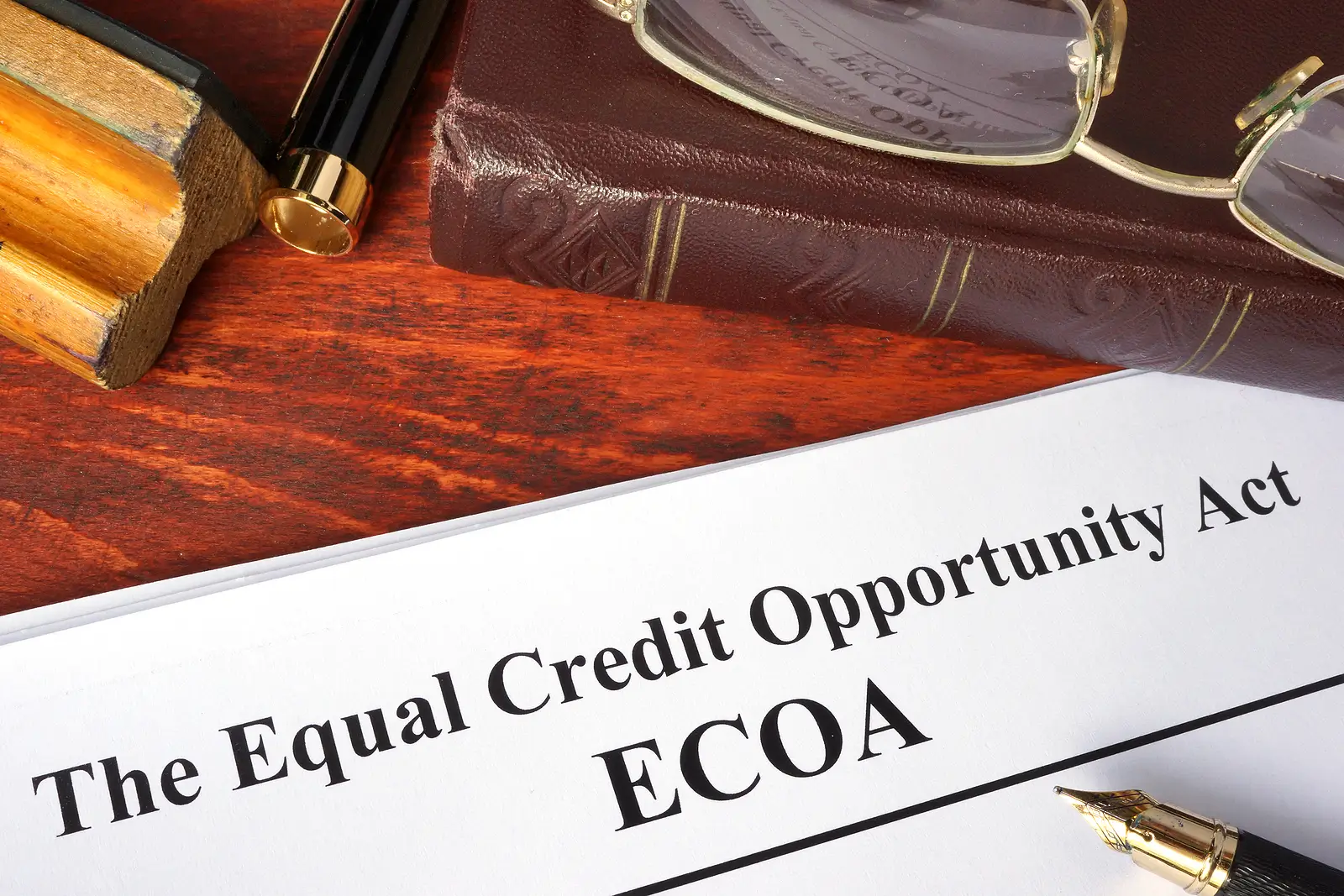The Equal Credit Opportunity Act (ECOA) is one such rulebook that landlords in Westminster must be familiar with. Think of it as the "golden snitch" of fair lending practices that is hard to catch but game-changing when you do.
This federal civil rights law isn't just a set of guidelines; it's a mandate that ensures fairness in credit transactions and prohibits discrimination.
If you're a landlord, property investor, or real estate enthusiast, this guide will help you avoid mistakes and navigate the ECOA and its impact on your business.
Key Takeaways
The ECOA ensures fair lending practices and prohibits discrimination based on protected classes like race, gender, and marital status.
Landlords must issue adverse action notices when denying credit or offering less favorable terms to borrowers.
Compliance with the ECOA not only avoids legal risks but also enhances your reputation as a fair and inclusive landlord.
What Is the Equal Credit Opportunity Act (ECOA)?
The Equal Credit Opportunity Act is a federal law designed to ensure that all individuals have equal access to credit. It prohibits discrimination based on race, color, religion, national origin, sex, marital status, age, or whether an applicant's income derives from public assistance programs.
For landlords, this means you must treat all applicants fairly when evaluating credit applications for rental properties.
ECOA vs. Fair Housing Act: Key Differences
While the ECOA focuses on credit transactions, the Fair Housing Act addresses housing-based discrimination. Both laws aim to protect tenants, but the ECOA targets financial institutions, credit unions, and landlords that extend credit explicitly.
Understanding these distinctions is crucial for ensuring compliance with federal laws and regulations.
Protected Classes Under the Equal Credit Opportunity Act
The ECOA identifies several protected classes, including race, color, religion, national origin, sex, marital status, and age. It also protects individuals whose income comes from public assistance programs or disability insurance.
As a landlord, you must ensure that your tenant screening process does not discriminate against these groups.
How ECOA Impacts Westminster Landlords
In Westminster, the ECOA plays a significant role in shaping landlord-tenant relationships. You are required to ensure fair lending practices, whether you're evaluating a credit application or setting credit terms. Non-compliance can lead to enforcement actions by federal agencies, such as the Consumer Financial Protection Bureau (CFPB).
Tenant Screening and the ECOA
Tenant screening is a critical step in the rental process, but it must align with ECOA regulations. This means you cannot deny credit or housing based on a tenant's credit history, familial status, or national origin.
Always act in good faith and exercise fairness when reviewing applications.
Credit Transactions and the Role of Financial Institutions
Credit transactions are at the heart of the ECOA. Whether you're working with federal credit unions, finance companies, or savings associations, these institutions must comply with the law. As a landlord, you should also ensure that your practices align with these standards.
Adverse Action Notices: What Landlords Need to Know
An adverse action notice is required when you deny credit or offer less favorable terms to an applicant. This notice must include specific reasons for the decision, ensuring transparency and compliance with Regulation B.
Regulation B and Its Relevance to Landlords
Regulation B enforces the ECOA by requiring creditors to provide written valuations and notifications to borrowers. For landlords, this means you must document your decisions and provide applicants with clear explanations when taking adverse actions.
Common ECOA Violations in Rental Housing
ECOA violations can range from treating applicants differently based on protected classes to failing to issue adverse action notices. These violations not only harm your reputation but can also result in punitive damages and enforcement actions.
How the ECOA Prohibits Discrimination
The ECOA explicitly prohibits lenders and landlords from discriminating against applicants based on race, gender identity, sexual orientation, or familial status. This federal law ensures that everyone has an equal opportunity to secure housing.
FFair Lending Practices for Westminster Landlords
To ensure fair lending practices, you must evaluate all applicants based on objective criteria, such as credit reports and income. Avoid making decisions based on prohibited bases, and always act in good faith.
The Role of Federal Agencies in Enforcing the ECOA
Federal agencies, such as the CFPB and the Federal Trade Commission (FTC), are responsible for enforcing the ECOA. These agencies investigate complaints, issue penalties, and ensure that landlords and financial institutions comply with the law.
ECOA and Small Business Loans for Landlords
If you're a landlord seeking small business loans or mortgage loans, the ECOA ensures that you are treated fairly. Lenders cannot deny credit or offer unfavorable terms based on your race, marital status, or other protected characteristics.
The Impact of the Dodd-Frank Act on ECOA Compliance
The Dodd-Frank Act strengthened the ECOA by enhancing enforcement mechanisms and expanding consumer protections. It also gave the CFPB more authority to regulate financial institutions and landlords, ensuring compliance with federal laws and regulations.
Steps Westminster Landlords Can Take to Ensure Compliance
To comply with the ECOA, you should:
Review all credit applications objectively.
Provide applicants with adverse action notices when necessary.
Maintain accurate records and suspect discrimination in your processes.
Benefits of ECOA Compliance for Landlords
Compliance with the ECOA offers several benefits, including:
Enhancing your reputation as a fair and inclusive landlord.
Attracting a diverse pool of tenants.
Avoiding legal risks and penalties associated with non-compliance.
Partner with Experts to Stay Compliant
The ECOA prohibits lenders and landlords from treating applicants differently, ensuring fairness in personal loans, tenant screening, and loan modifications. By acting with good faith, you can avoid penalties such as consumer reports or punitive damages while attracting a diverse range of tenants, including Hispanic borrowers.
Copper Vine specializes in helping landlords stay compliant with ECOA regulations, offering expert tenant screening and property management services.
Visit Copper Vine to protect your business and thrive in the rental market.
FAQs
1. How does the ECOA connect to the Consumer Credit Protection Act and other federal agencies?
The ECOA is part of the Consumer Credit Protection Act, enforced by federal agencies such as the CFPB, which ensures that lenders, including credit card companies and retail stores, follow anti-discrimination laws.
2. What are the consequences if lenders treat applicants differently?
Lenders who violate the ECOA by treating applicants differently may face enforcement actions, actual damages, punitive damages, and complaints filed with a government agency or national association.
3. What must landlords provide when denying credit or offering less favorable terms?
Landlords must issue a creditor's notification or adverse action notice, detailing the reasons and any other written valuations, to ensure good faith and ECOA compliance.
Other Resources:
Why Public Transportation is Important to Your Tenants in Westminster
How to Build Strong Tenant Relationships in a Digital Age: A Guide


